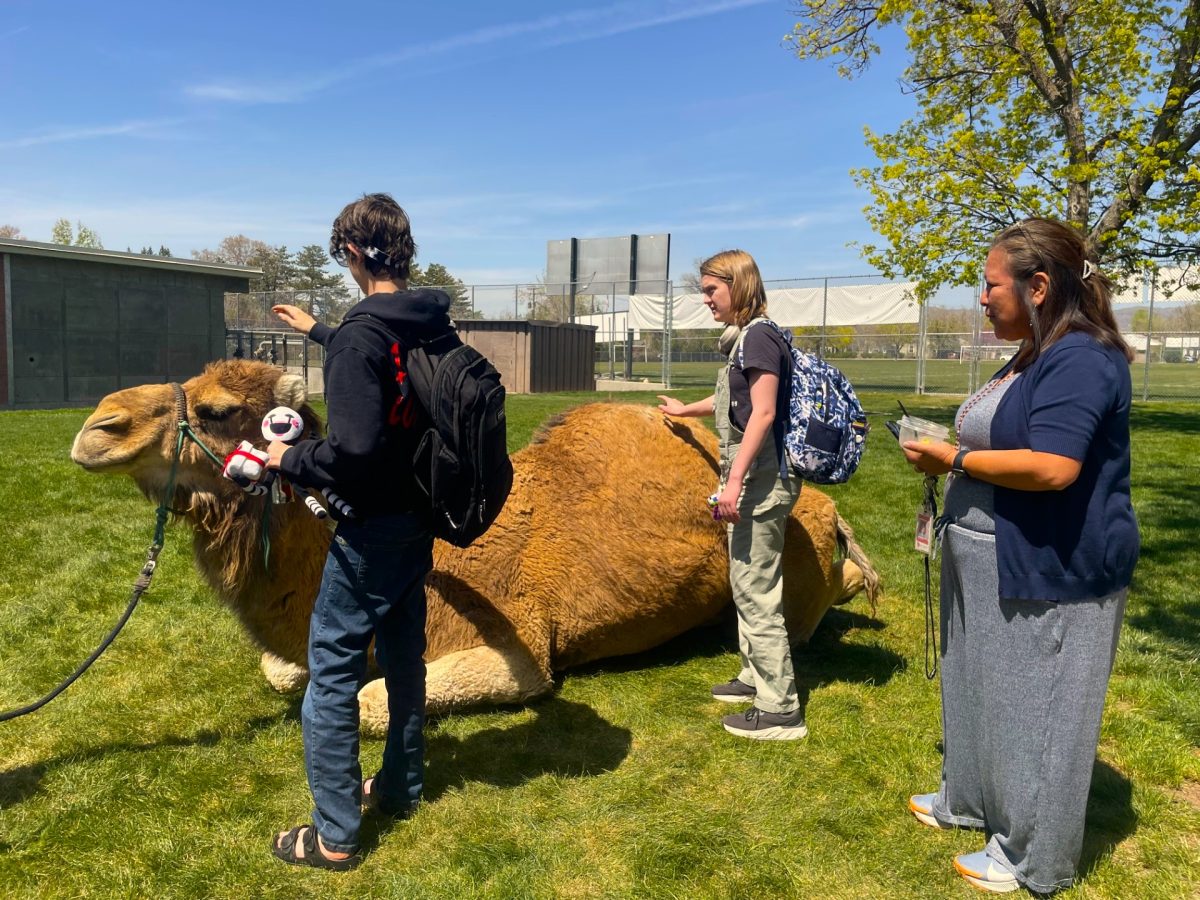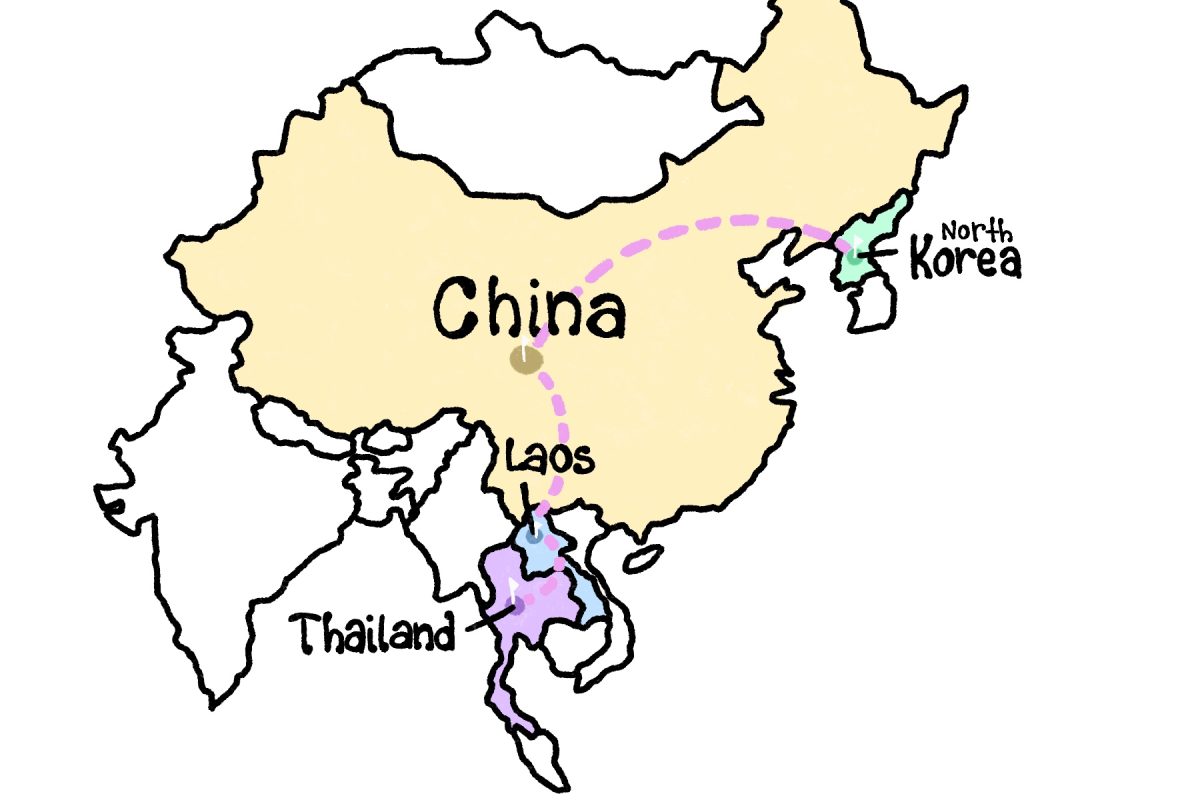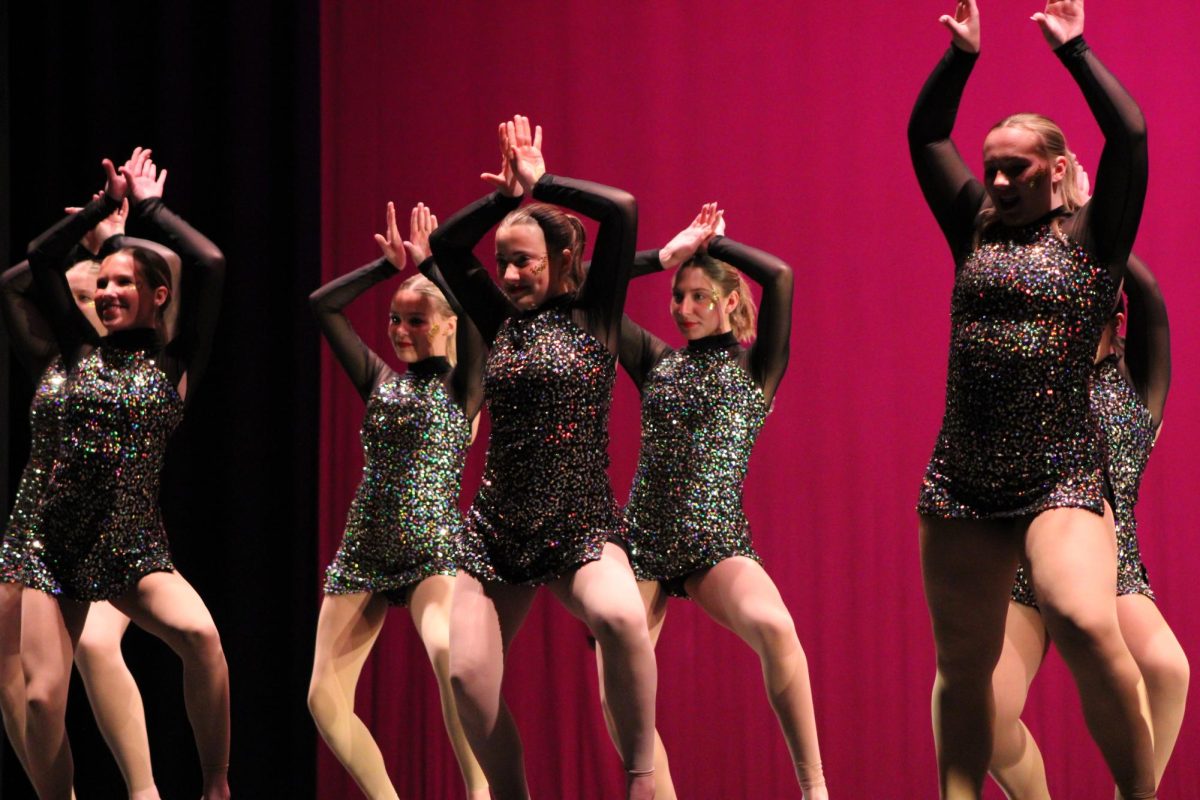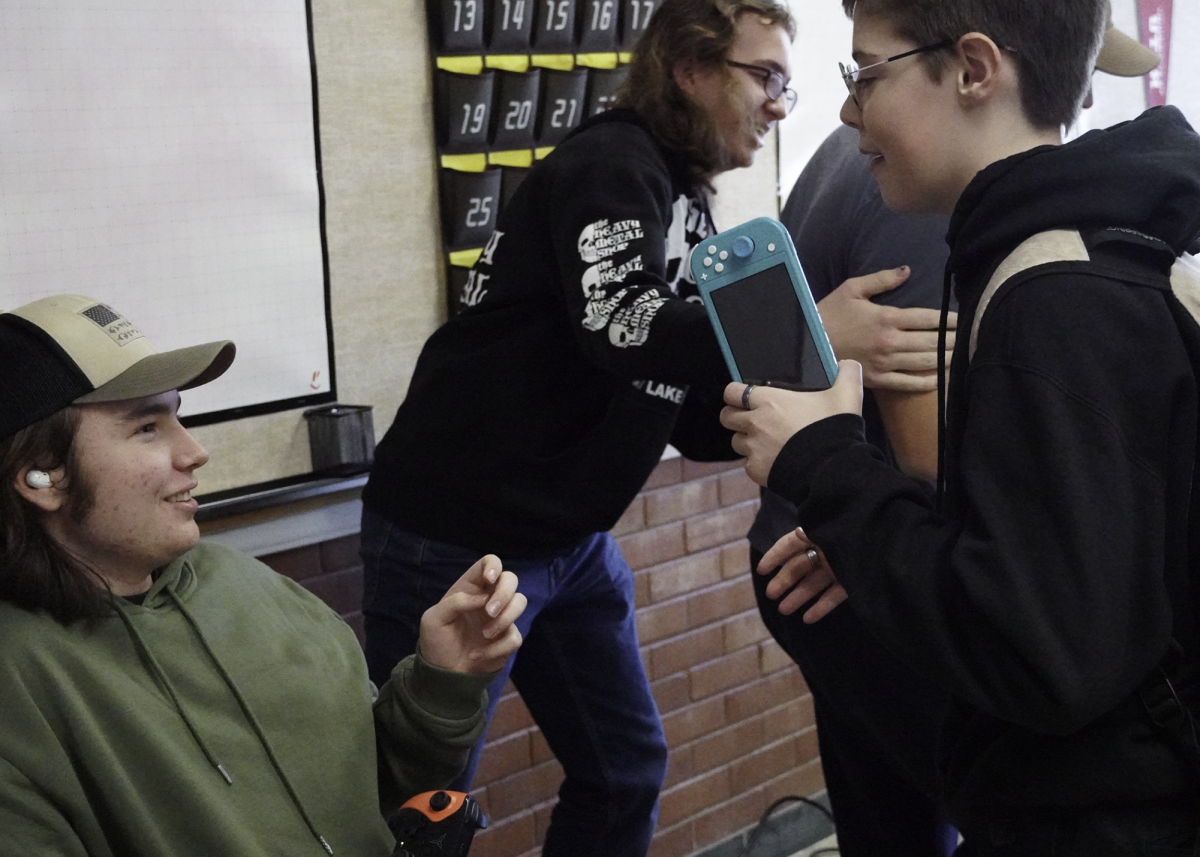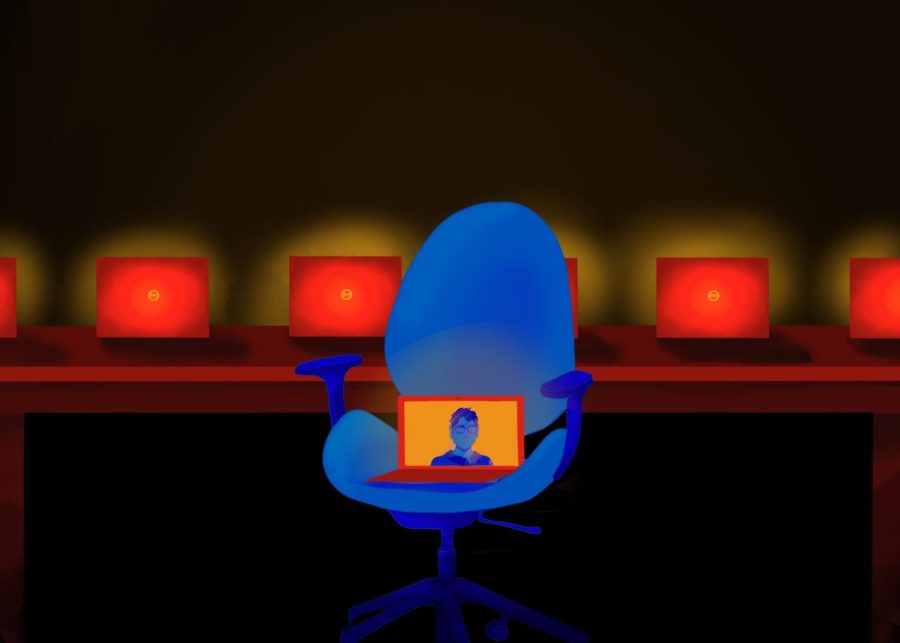Only YOU Can Prevent the Robot Uprising
January 10, 2023
Imagine this: You walk into your classroom on a Monday morning, tired, unmotivated, already wishing it was Friday. You make your way to your desk, say hi to your friends, and nod to the computer regulator.
That’s right. Computer regulator.
Where is the teacher you ask?
Oh, we don’t have those anymore.
I know what you’re thinking. Robot uprising! Well, guess what. That’s precisely what it is. And it’s our fault.
Well, robot uprising, online school programs–what’s the difference? It’s not unlike when you have a sub in class. You check Canvas, do your assignment that the teacher left online (if you’re one of those kids at least), and maybe if you’re really desperate, you ask the sub if they can help figure out how on Earth you’re supposed to do this math problem, though of course, they have no idea.
This is the future we’re facing.
Farmington High School in Utah’s Davis School District implemented a little something that has been defined as a “live online option,” in which instead of a teacher physically instructing their students, they’re simply regulating a video for the class to watch and learn from. There’s no hands-on learning. There’s no discussion. There’s no flexible lesson plan. It’s all on a computer.
Yikes.
As the child of a teacher, and as a student myself, I see a lot of issues with this new program.
My mom taught math over Zoom in the height of the pandemic. And despite the fact that she did her very best to help her students learn, it was kind of a disaster. When her students could only see a screen, they couldn’t focus or retain any information, even though she was instructing them.
Imagine how successful that would be in a classroom. Because really, it’s the same thing. The only component that’s missing is a physical human doing the work with the students. It’s just a video.
“Honestly, the way you guys reacted with Zoom, I don’t think it’s going to be beneficial. I think it would be like Zoom–very easy to not pay attention and do something else,” Highland art teacher Tera Hunter said.
Also, what happens if the internet won’t load? Will the computer regulator be able to teach them the lesson? If not, does that just mean the class will end up behind on curriculum?
Different people work at different rates. Everyone learns differently. So, a generalized online education doesn’t seem like it would be doing anyone any favors.
“I think part of teaching is watching the kids react to what you’re doing. I adjust lessons all the time based on how the class is rolling–how things are working–so timing changes–even with my three painting classes they’re all at a different stage, they’re all doing different things, because I work with each of them as we’re kind of going across,” Hunter said.
Honestly though, the worst part about all of this isn’t the loss of education. Of course, that’s an issue, but the true problem is the loss of connection and communication between students and teachers.
I spend a lot of time with my teachers. But that’s not only because I am required to be in their classrooms. Sometimes, I go to them because I need help in my social life. I need their advice on how to handle any personal problems I might have. Sometimes, I just need a safe place to cry. And a lot of the time, when I’m at school without a parent, it feels like my teachers are the people I can trust the most.
I know I’m not the only person who feels like that. Teachers are often a strong and steady constant in the shaking worlds of some teenagers. They help us grow into who we should become and are comforts when we don’t have anyone else to go to.
Teachers see a side of us that sometimes, no one else notices. They can tell when something is wrong. Oftentimes, they can tell when a student is in danger and are the ones who step in and save them when no one else could.
“Even in the bigger classes, yeah, I don’t get to know them as personally, but even in those classes sometimes I’ll have students that need help that day because something happened in their life and they’re willing to tell me that because we have built up that idea of who we are [together],” Hunter said.
Not only that, but they teach us about interaction. They show us how to be adults simply by treating us like we are adults.
Without my teachers, I wouldn’t be the person I am today. Why would you take that away?
“Not having that kind of interaction with your students would definitely hurt because I wouldn’t be able to get to know them, I wouldn’t be able to have that kind of understanding of their own individual needs,” Hunter said.
Though it may seem more efficient to teach via an online program in the classroom, what saves time now will cost us so much more in the future. We need our teachers. Without them, not only will we miss out on learning, but we’ll also lose yet another pillar of stability in our lives. Don’t let the robots win. Please.


